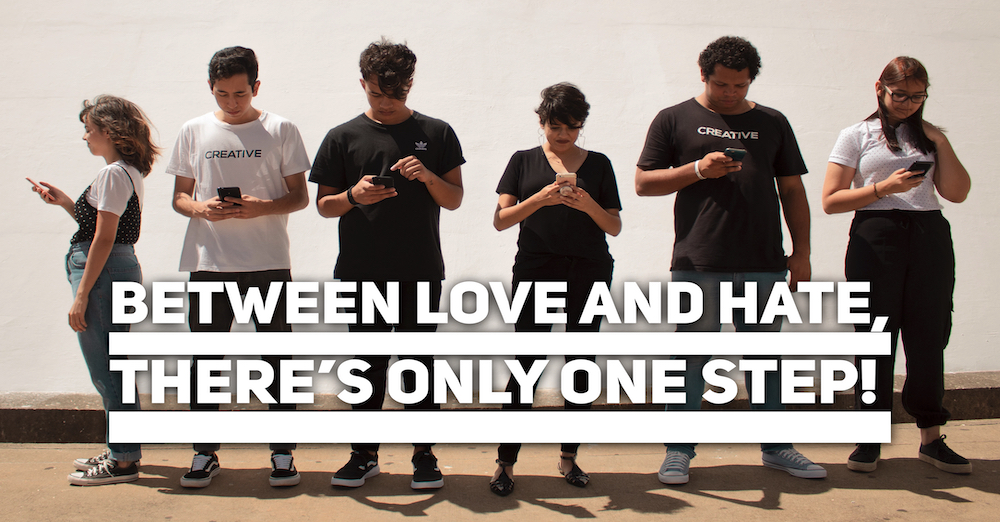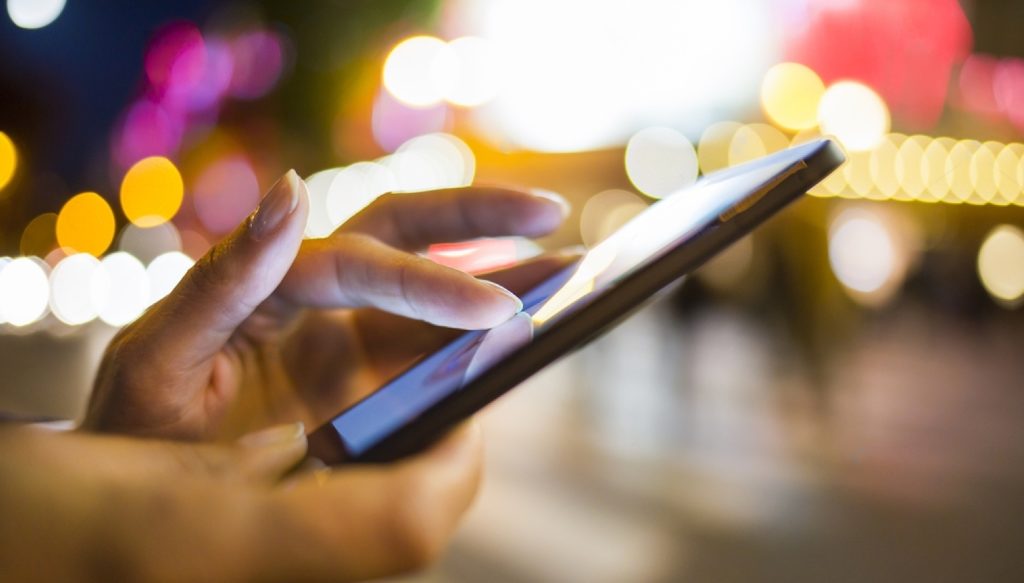
Jane and her friend Steph had been inseparable since school. They used to talk on their cell phones for hours every night, sharing stories and secrets. But lately, Steph used her cell phone more than usual, even during restaurants, family gatherings, or walking the dog. Jane noticed the change in her friend and was worried, but she didn’t dare talk to her. One day, Steph fell ill. After tests, doctors discovered that some symptoms were due to excessive cell phone use.
Between love and hate, there’s only one step! The “smartphone” is man’s best friend and accompanies him every day, wherever he goes and whatever he does, day and night. But, excessive use can become the worst enemy.
What are the dangers of cell phones?
1 Decreased vision—watch out for blue light! Red eyes and headaches, and excessive use of screens, cause eyestrain. Eyes cannot withstand exposure to blue light for long periods. A young Spanish woman suffered temporary blindness for a few months due to this bad habit. She checked her cell phone at night in bed with only one eye; the other was covered by the pillow, as it was on one side. The difference in light caused asymmetry and loss of vision. Always be sure to look at the screen with both eyes.
2 Dry eye. Teenagers are the first victims: they send 3,000 text messages monthly. And when they go that long without blinking enough (usually in front of a small screen), the diagnosis is “dry eye syndrome,” which could also cause irreversible damage.
3 Insomnia. Because blue light stimulates the body like caffeine, it is important not to sleep next to a cell phone. Exposure to screens at night causes insomnia. To ensure a good night’s sleep, turn off your cell phone an hour and a half before bedtime.
4 Effects on the brain. The risk of glioma, an aggressive type of brain cancer, could double in intensive cell phone users. The harmfulness of electromagnetic waves and their possibility, several teams constantly analyze the relationship with brain cancers of researchers.
5 Nomophobia, stress. If you are worried about losing your cell phone or running out of battery, you suffer from “nomophobia.” Born from the contraction of “no mobile phobia,” it is a recent term that refers to the phobia of not having your cell phone at hand. Moreover, your electronic companion is a stress magnet. And some users feel imaginary vibrations in their pockets: this is called “phantom phone syndrome.”
6 The neck. This problem affects teenagers. Staying bent forward is terrible in times of total growth and causes neck pain associated with neck strains or contractures. The disorder, called Tex neck, is due to the wrong posture that the neck adopts by the cell phone’s constant use.
7 The fingers. Undoubtedly, the movement of the fingers on the mobile keyboard causes tendinitis. Repeating the same gesture or movement constantly for hours is unsuitable for our fingers. The “carpal tunnel syndrome” is the most common disease caused by excessive cell phones and extreme pressure on one of the nerves of the wrist, which impacts the sensitivity and movement in various parts of the hand—symptoms: numbness, tingling, and weakness in the hand and fingers.
8 Poor posture. The cell phone is synonymous with bad posture, which generates pain in the muscles, neck, shoulders, and lumbar region: musculoskeletal disorder (MSD). Typing many messages causes pain in the tendons, wrist, and hand.
9 Weight and obesity. In front of a screen, consuming products whose nutritional quality is questionable, such as sweets, cakes, and salty snacks, is increasingly widespread. The screen blocks the feeling of satiety, and the number of calories ingested becomes much higher than the necessary intake.
10 Exercise. It is necessary to perform 30 minutes of activities daily, with an outing every two hours in front of a screen. Exercises such as walking or cycling in the gym are too recommended. According to the WHO, recent cases of obesity in children and adolescents have increased due to a lack of physical activity due to cell phones. One third of adolescents aged 13 to 15 are overweight and therefore at risk of cardiovascular disease.
Are you a cell phone addict? The answers to five (5) questions will determine if you are potentially addicted to cell phone use.
1 Do you check your cell phone first thing in the morning? 2 Do you check your cell phone last thing in the evening? 3 Do you need to check immediately every time your cell phone tells you that a WhatsApp message or an update on your social networks has arrived? 4 Do you feel you cannot leave your home without your mobile and feel afraid to be without it? 5 Do you have the impression that your mobile vibrates or rings when it does not?
If all answers are positive, you have compulsive behavior for using your ‘cell phone.’
ENCYCLOPEDIA. Radiation and Health.
